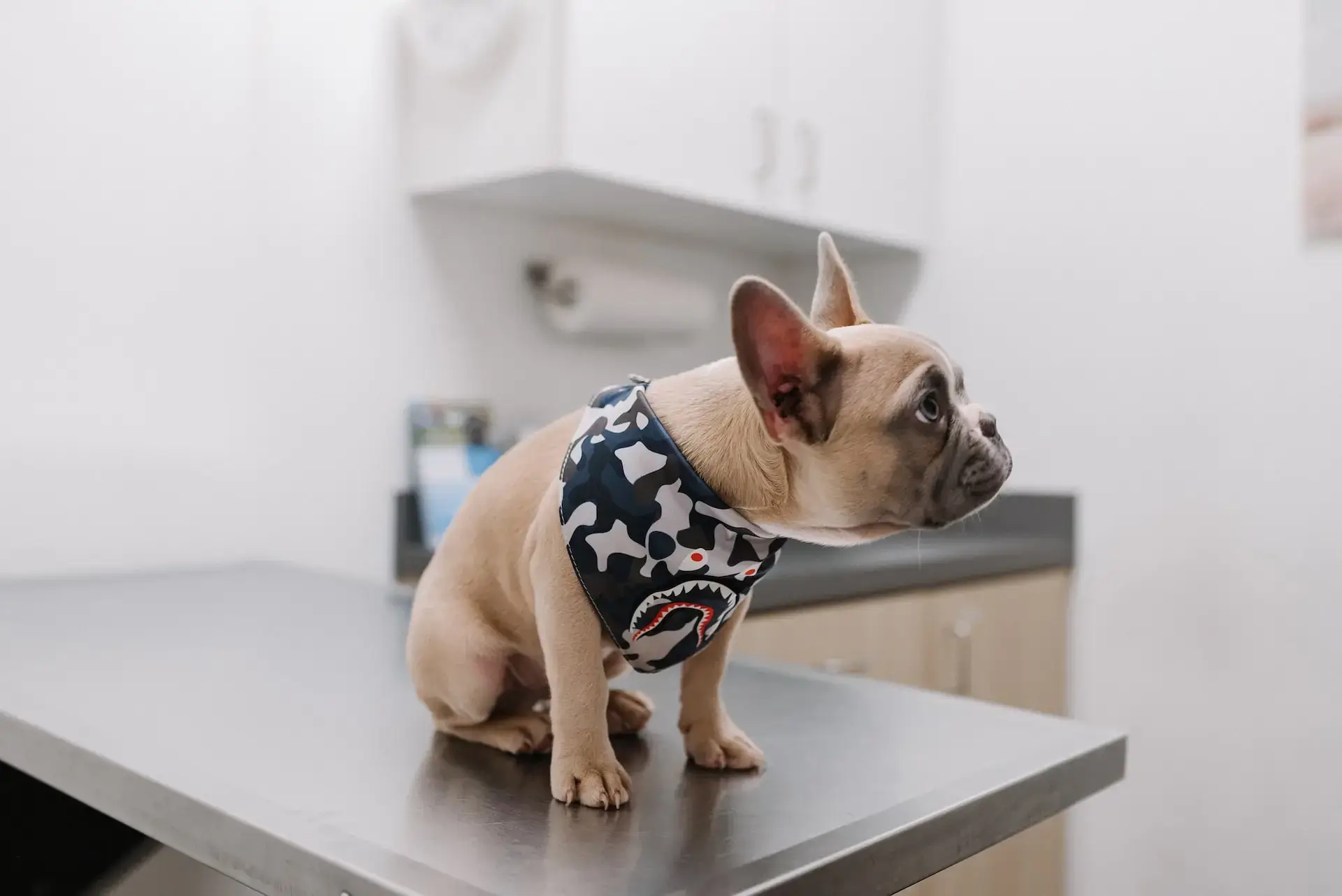Arthritis In Dogs

Arthritic joint pain can seriously impact Fido’s health, happiness, mobility, and quality of life. It is one of the most common conditions our canine companions face. In fact, as many as 80 percent of dogs show signs of the disease by age eight.
Although veterinary medicine has come a long way in recent decades, unfortunately, there is no cure for canine arthritis. However, there is good news here: there are ways to soothe your dog’s arthritis pain and help him live a long and happy life. Treatment options may range from supplements to surgical procedures: it just depends on the type or types of dog arthritis your pooch has. A local Coral Springs, FL vet explains more in this article.
Understanding Your Dog’s Arthritis Pain
Canine arthritis is very much like human arthritis, with osteoarthritis being the most common type of arthritis in both people and pets. The condition is caused by a gradual wearing out of the cartilage between joints. In dogs, this is usually the weight-bearing joints, such as the hip, shoulders, wrists, and knees. Over time, that tissue becomes thinner and loses its elasticity. This causes friction, swelling, and inflammation, which is of course very painful. Over time, bone spurs may start to form, which only exacerbates the issue. Arthritis can also sometimes develop as a side effect of a more complex condition, such as an autoimmune deficiency.
What Causes Arthritis In Dogs?
The main culprit here is usually simple wear and tear. All that running and playing takes a toll on Fido’s bones and joints! However, that isn’t the only factor. Diet also plays a large role. If your pet didn’t get proper nutrition as a puppy, his risk of osteoarthritis will also be increased. Any issues at that crucial stage can cause problems down the road. This is particularly common in larger breeds. That massive growth spurt big dogs go through puts a lot of strain on their bodies.
Genetics are another factor. Some breeds are simply more prone to developing arthritis than others. These include the Labrador Retriever, Poodle, German Shepherd, Pug, and Golden Retriever. Your furry friend’s fitness regime also factors in: too much exercise, too little exercise, and/or the wrong type of exercise can also increase his risks. With some dogs, repeatedly jumping or ‘standing’ causes excessive strain to their joints, and can exacerbate the condition. Pups that have suffered injuries, such as broken bones or damaged ligaments, are also at higher risk, as are pooches with certain health issues, such as obesity, hip and elbow dysplasia, osteochondrosis, and diabetes. Ask your Coral Springs, FL vet for more information.
Symptoms Of Arthritis In Dogs
Fido can’t tell you if something is bothering him, so you’ll need to keep a close eye out for warning signs. Lameness is usually the first thing you’ll notice. Your canine buddy may seem stiff and sore, and he may limp when he stands up. At first, that limp will go away as he gets moving and warms up, but it will get progressively worse over time. Other red flags include lethargy, reduced appetite, lack of interest in play, and reluctance to jump, climb stairs, or get in and out of the car. Your pooch may not be very interested in exploring new trails, chasing squirrels, or going to the dog park, and he may seem grumpy or depressed. Inappropriate soiling can also be a sign, especially if your pet has to go up and down stairs to get outdoors.
When Does Arthritis Come On In Dogs?
Arthritis is most commonly seen in senior dogs. However, it can appear at any point in Fido’s life. In fact, about one in five pooches show signs of osteoarthritis by age one. Keep in mind that dogs don’t all age at the same pace. Large dogs reach their golden years before small breeds do. For instance, a Saint Bernard may be a senior at just seven, while a Chihuahua may not be considered ‘retired’ until he’s ten or even older.
Can A Dog’s Arthritis Pain Come On Suddenly?
In most cases, arthritic pain begins gradually, and will slowly but steadily worsen. However, the symptoms can get worse suddenly. Cartilage doesn’t have nerves, so Fido won’t feel the pain from that tissue wearing away until it loses the capacity to protect his joints. Therefore, you may not notice anything wrong until your canine buddy’s condition has become quite serious.
Caring For Dogs With Arthritis
Fortunately, there are ways to soothe your dog’s joint pain. A proper diet is crucial here. Keep a close eye on Fido’s body condition, and nip any weight gain in the bud. You’ll also need to make sure your pooch is getting the right type and amount of exercise. Next on the list? Provide a good orthopedic doggy bed. Or two. Or three. It never hurts to have choices! Your vet will also be able to discuss various treatment options, which will depend on the type of arthritis Fido has. Joint supplements can also help, as will keeping your pooch at or near his ideal body weight.
Exercising A Dog With Arthritis
Joint pain can make it uncomfortable for dogs to run and play, and will definitely put a damper on Fido’s love of playing Fetch. Just don’t let your pup become a couch potato. Otherwise, he’ll lose muscle mass, which will affect his overall body condition and ultimately make matters worse. He’ll also be more likely to be over his ideal body weight. Doggy workouts are not one-size-fits-all, so ask your Coral Springs, FL vet for specific advice. That said, most pooches need at least a daily walk to stay healthy. Swimming can also be a great option, assuming that it’s warm enough and, of course, that your dog actually enjoys it.
What Makes Arthritis In Dogs Worse?
Certain things can exacerbate arthritis. Weather is one factor. Just like people, dogs often get stiff and sore when it’s cold. Fido will also be more inclined to snuggling up in his doggy bed than playing Fetch. (We can’t really blame him for that.) If your canine pal has thin fur, put a jacket on him when it’s frigid out.
How Is Canine Arthritis Treated?
Treatment options should ultimately vary, and may change a bit with different stages and types of dog arthritis. If you know or suspect that Fido is showing signs of arthritis, or if your pooch is perhaps at risk of developing it due to his breed, health, or history, contact your vet to schedule a complete physical examination. Once your furry pal has been diagnosed, you’ll be able to go over the various treatment options. These may include medications, such as non-steroidal anti-inflammatory drugs (NSAIDs); steroids or cortisone; or chondroprotectants, which can help ward off cartilage destruction. Never give your pooch anything unless your vet specifically recommends it. Veterinary medicine is complex, and is in some ways very different from human medicine. Some of our medication is toxic to dogs!
Aside from medication, physical therapy may also be beneficial. Surgery is an option for some pups, though your vet may advise trying less invasive measures, such as alternative therapy, such as massage and/or joint supplements, before opting for surgical procedures. Laser therapy can also be beneficial. This is becoming quite popular in the world of veterinary medicine! Certain supplements, such as glucosamine, may also help.
Can I Prevent My Dog From Getting Arthritis?
There’s no way to completely guarantee that your canine companion will never become arthritic. However, proper care and preventative measures can make a huge difference. A good diet is crucial. Extra pounds are not good for Fido’s health! They also put a lot of extra strain on your dog’s bones and joints. This isn’t heresy: studies—including one by the University of Glasgow and Utrecht—have shown that weight loss significantly improved mobility and reduced lameness in arthritic pups. Fido should also visit his vet regularly for physical examinations and wellness care.
In conclusion, while arthritis is not the most complex condition we see in dogs, it is quite common and can be extremely painful. Keep an eye out for warning signs of arthritis, and contact your vet immediately if you notice any of them.Do you have questions about your dog’s health or care? Call us, your local Coral Springs, FL veterinary clinic, today!




